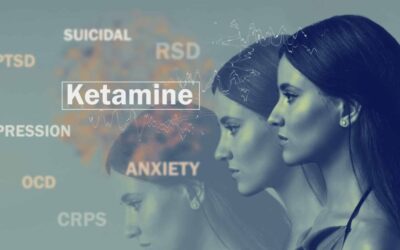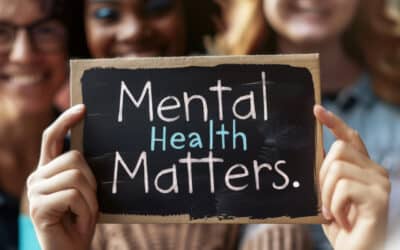Attention Deficit Hyperactivity Disorder (ADHD) and depression are like unwelcome dance partners in the minds of many. These two mental health conditions often intertwine, creating a complex web of symptoms and challenges. Like the unraveling of a tapestry, this connection is more than just medical curiosity – it’s a crucial step toward proper diagnosis and effective treatment. Let’s explore how these conditions overlap, why they frequently occur together, and what this means for those affected.
Understanding the Basics
ADHD (Attention Deficit Hyperactivity Disorder) is a neurodevelopmental condition characterized by inattention, hyperactivity, and impulsivity. It’s often described as having “a brain that’s always on the go.” People with ADHD may struggle with focus, organization, and controlling impulses.
Depression, a mood disorder, manifests as persistent sadness, hopelessness, and loss of interest in activities. It can feel like a “heavy fog” clouding daily life. Symptoms include changes in sleep patterns, appetite, and difficulty concentrating.
While distinct, these conditions can overlap, weaving together like a tapestry, complicating diagnosis and treatment. Understanding their core features is crucial for recognizing their interaction.
The Overlapping Terrain
The overlap between depression and ADHD can be significant. Individuals with ADHD are more likely to experience depression compared to the general population. This increased risk can be attributed to several factors:
Shared Symptoms
Both conditions can involve symptoms like difficulty concentrating, fatigue, and irritability. This overlap can make it challenging to accurately diagnose either disorder.
Increased Stressors
Individuals with ADHD may face additional challenges in life, such as academic or career difficulties, which can contribute to increased stress and a higher risk of depression.
Underlying Biological Factors
There may be underlying biological factors that increase the likelihood of developing both ADHD and depression. For example, imbalances in certain neurotransmitters may play a role in both conditions.
The Impact on Daily Life
The combination of depression and ADHD can significantly impact an individual’s daily life, leading to a range of challenges. Here are some specific areas where this combination can be particularly difficult:
Academic and Professional Performance
- Difficulty concentrating and completing tasks: Both depression and ADHD can make it challenging to focus and stay on task, leading to difficulties in school or work.
- Low energy and motivation: The combination of these conditions can make it difficult to find the energy and motivation to engage in academic or professional activities.
- Poor time management: ADHD can lead to difficulties with time management, while depression can make it difficult to prioritize tasks.
Relationships:
- Strained relationships: The emotional turmoil associated with depression and ADHD can strain relationships with friends, family, and loved ones.
- Difficulty communicating: Challenges with concentration and impulsivity can make it difficult to communicate effectively, leading to misunderstandings and conflicts.
- Social isolation: The combination of these conditions can make it difficult to connect with others and maintain social relationships.
Emotional Well-being:
- Feelings of hopelessness and worthlessness: Depression can lead to persistent feelings of hopelessness and worthlessness, which can be exacerbated by the challenges of ADHD.
- Increased risk of self-harm: Individuals with depression and ADHD may be at a higher risk of self-harm or suicidal thoughts.
Substance Abuse:
- Increased risk of substance abuse: Individuals struggling with depression and ADHD may be more likely to turn to substance abuse as a way to cope with their symptoms.
It’s important to note that the impact of depression and ADHD on daily life can vary greatly from person to person. However, understanding the potential challenges can help individuals and their loved ones develop strategies to cope and seek appropriate support.
Seeking Help
If you or someone you know is struggling with symptoms of depression and ADHD, it’s important to seek professional help. A qualified mental health professional can accurately diagnose both conditions and develop a personalized treatment plan.
Treatment Options
Treatment for depression and ADHD often involves a combination of approaches, including:
Medication
Medications can be effective in managing symptoms of both depression and ADHD.
Therapy
Cognitive-behavioral therapy (CBT) and other forms of therapy can help individuals develop coping skills, manage stress, and improve their overall well-being.
Lifestyle Changes
Making healthy lifestyle choices, such as getting enough sleep, exercising regularly, and eating a balanced diet, can also support mental health.
LGTC Group Mental Health Clinic
At LGTC Group, we understand the complexities of depression and ADHD. Our team of experienced mental health professionals is dedicated to providing comprehensive care and support to individuals struggling with these conditions. We offer a range of treatment options, including medication management, therapy, and support groups.
Navigating the ADHD-Depression Maze: Hope and Help
The interplay between ADHD and depression is far from simple, but understanding their connection is the first step toward reclaiming control. These conditions, while challenging, don’t have to define your life or limit your potential.
Effective management is possible with the right approach:
- Seek professional help: Mental health experts can provide accurate diagnoses and tailored treatment plans.
- Explore treatment options: Find what works best for you with the help of your team of behavioral health professionals, from therapeutic intervention to medication.
- Build a support network: Friends, family, and support groups can offer invaluable encouragement.
- Develop coping strategies: Learn techniques to manage symptoms in daily life.
- Practice self-compassion: Remember, you’re not alone in this struggle.
By addressing both ADHD and depression simultaneously, you can break the cycle of frustration and build a foundation for improved well-being. Whether you’re personally affected or supporting someone who is, don’t hesitate to reach out for help. With understanding, support, and proper treatment, it’s possible to not just manage these conditions, but to thrive despite them.
Remember: Your journey towards better mental health starts with a single step. Take that step today.










